Ingersoll,
Robert G.
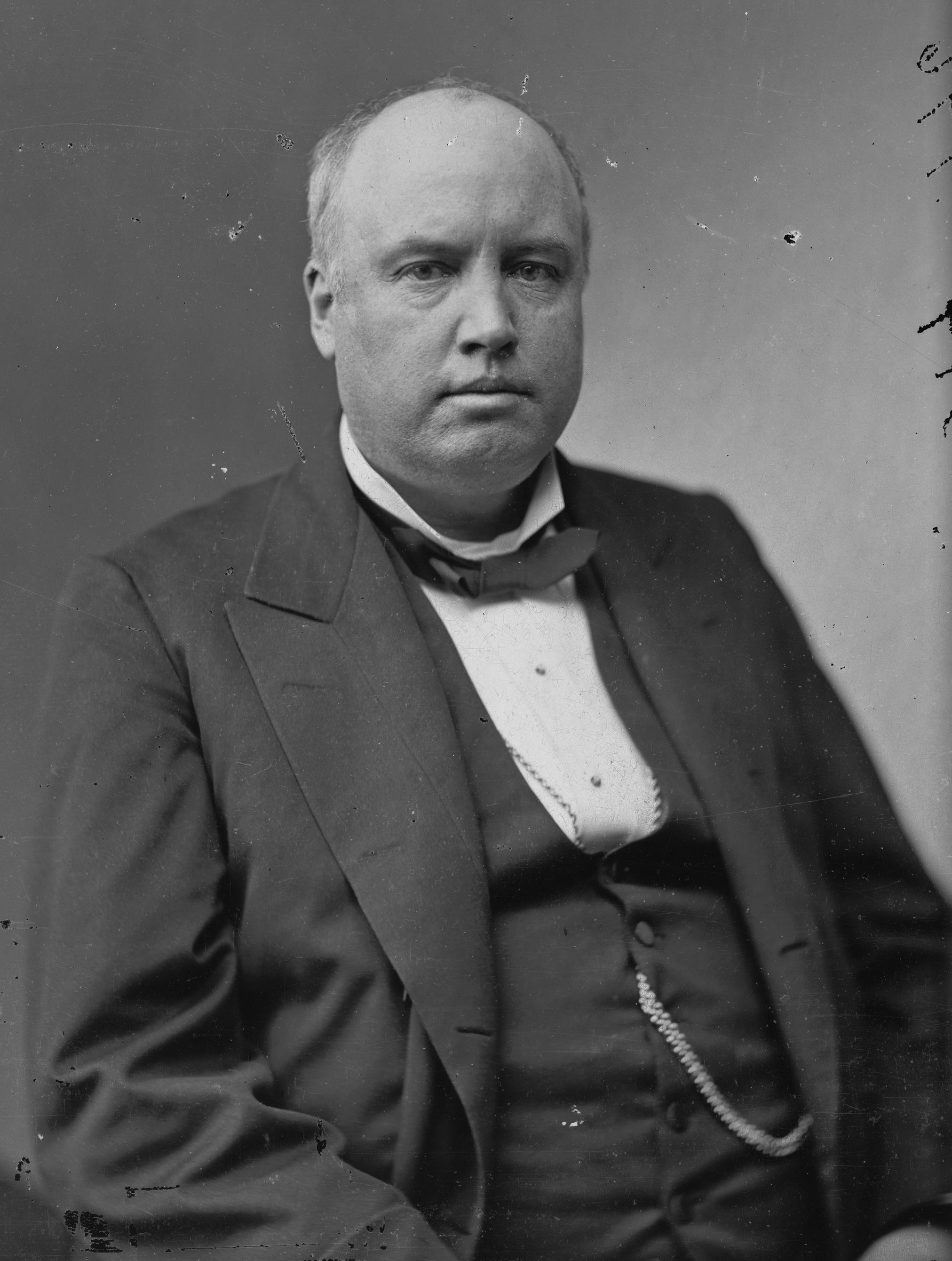
ENLARGE
|
I am satisfied that all human beings are entitled to the
essentials of life, that is to say, to water, to air, and to land.
[From: The George-Hewitt Campaign,
by Louis F. Post]
|
Ivins,
Molly
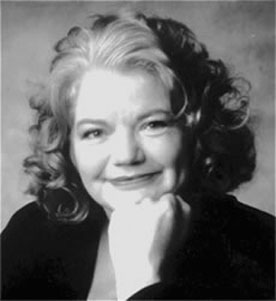
ENLARGE
|
Poor ol' Henry George must be down there in his grave spinnin'
like a cyclotron. We, the people at large, build the freeways, the
roadways, the airports, the schools, the wter and sewer
connections, the bridges, the ports and the sports arenas; we have
an raise the children (with ever less help from the government)
who want to move t the far suburbs and so make the land more
desirable, and then the landowners want us to pay them because we
won't allow them to poison the air we all have to breathe or to
pollute the rivers we all have to drink from. They say we are
hurting their land values.
Well, ex-cuuuse me. The air and the water belong to all of us;
it's the polluters who are ruining our property values. Why should
we be paying them?
[From: "Henry George is spinning
in his grave," Kansas City Star, 9 March, 1995]
|
Jackson,
Andrew
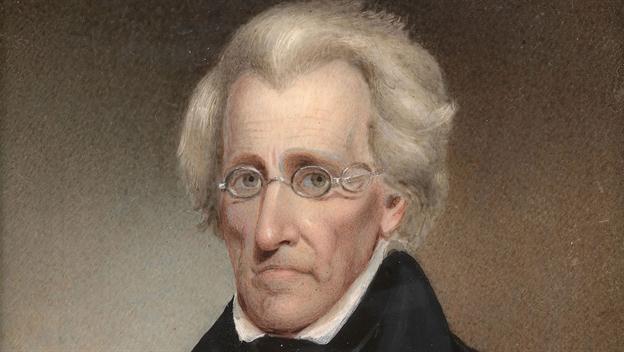
ENLARGE
|
Every man is equally entitled to protection by law; but when
the laws undertake to add ... artificial distinctions, to grant
titles, gratuities, and exclusive privileges, to make the rich
richer and the potent more powerful, the humble members of society
-- the farmers, mechanics, and labourers -- who have neither the
time nor the means of securing like favours to themselves, have a
right to complain of the injustice of their government.
[Source not known]
The tribes which occupied the countries now constituting the
Eastern States were annihilated or have melted away to make room
for the whites. The waves of population and civilization are
rolling to the westward, and we now propose to acquire the
countries occupied by the red men of the South and West by a fair
exchange, and, at the expense of the United States, to send them
to a land where their existence may be prolonged and perhaps made
perpetual. ...May we not hope, therefore, that all good citizens,
and none more zealously than those who think the Indians oppressed
by subjection to the laws of the States, will unite in attempting
to open the eyes of those children of the forest to their true
condition, and by a speedy removal to relieve them from all the
evils, real or imaginary, present or prospective, with which they
may be supposed to be threatened.
The prosperity of our country is also further evinced by the
increased revenue arising from the sale of public lands, ...
[From: Second State of the Union
Address, (1832)]
|
Jefferies,
Richard
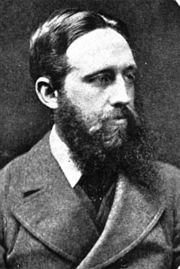
ENLARGE
|
John Richard Jefferies (1848 - 1887 ) was an English nature
writer, essayist and journalist. He wrote fiction mainly based on
farming and rural life. The Story of My Heart (1883) is an
autobiographical outpouring of his deepest thoughts and feelings.
This our earth this day produces sufficient for our existence.
This our earth produces not only a sufficiency, but a
superabundance, and pours a cornucopia of good things down upon
us. Further, it produces sufficient for stores and granaries to be
filled to the rooftree for years ahead. I verily believe that the
earth in one year produces enough food to last for thirty. Why,
then, have we not enough? Why do people die of starvation, or
lead a miserable existence on the verge of it? Why have millions
upon millions to toil from morning to evening just to gain a mere
crust of bread?
[From: The Story of My Heart
(1883), Chap. X]
|
Jefferies,
Richard
|
That any human being should dare to apply to another the
epithet "pauper" is, to me, the greatest, the vilest,
the most unpardonable crime that could be committed. Each human
being by mere birth has a birthright in this earth and all its
productions; and if they do not receive it, then it is they who
are injured, and it is not the "pauper," oh,
inexpressibly wicked word! -- it is the well-to-do who are the
criminal classes.
[From: The Story of My Heart,
Chap. X, p. 122]
|
Jefferson,
Thomas
(1743-1826)
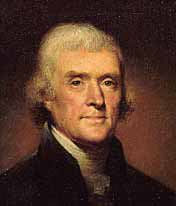
ENLARGE
|
Along with Benjamin Franklin, Jefferson was one of the
most inventive and intellectual of the so-called Founding
Fathers of the United States of America. Jefferson was the
principal author of colonial Declaration of Independence from the
British empire and royal subjugation. Among other things Jefferson
wrote concerning the land question was this:
The earth is given as a common stock for men to labor and to
live on. ... Wherever in any country there are idle lands and
unemployed poor, it is clear that the laws of property have been
so far extended as to violate natural right.
[From: Writings of Jefferson.
Ford, Lesson IX.]
|
Jefferson,
Thomas |
The earth belongs always to the living generation;
they may manage it, then, and what proceeds from it, as they
please, during their usufruct.
[From: Works, Washington's
Edition, III,, 106]
|
Jefferson,
Thomas |
Whenever there is any country uncultivated lands and
unemployed poor it is clear that the laws of property have been so
far extended as to violate natural rights. The earth is given as a
common stock for man to labor and live on..
[From: a letter to Jame's Madison
father, Reverend Madison, 28 October 1785]
|
Jupp,
Kenneth
|
People should pay to society the value of what
they receive from society, which is reflected in the value of the
land they occupy. To allow that value to be bought and sold
between private individuals is morally wrong. Land is, by natural
law, the common property of the community.
[Kenneth Jupp served as a Judge on
the British High Court]
|
Kahn,
Alfred E.
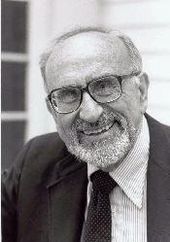
ENLARGE
|
I have never seen a convincing refutation of the Henry George
proposition that taxing the rental value of land would actually
increase the supply offered in the market, whereas taxing capital
must to some extent interfere with the growth of productivity.
[Professor of Economics, Cornell
University; quote from the forward to Tertius Chandler's 1980 book
The Tax We Need]
|
Kant,
Immanuel

ENLARGE
|
All men are originally in a common collective possession
of the soil of the whole earth.
[From: Philosophy of Law, Part
I., Chap. 2, Sec. 16]
|
Kaysen,
Carl

ENLARGE
|
It is important that the rent of land be retained as a source
of government revenue.
It provides revenue with which governments can pay for socially
valuable activities without discouraging capital formation or work
effort, or interfering in other ways with the efficient allocation
of resources.
[Professor of Economics, M.I.T.; from
a letter dated November 7, 1990 to Mikhail Gorbachev, signed by 30
prominent persons, mostly economists]
|
Keller,
Helen
(1880-1968)
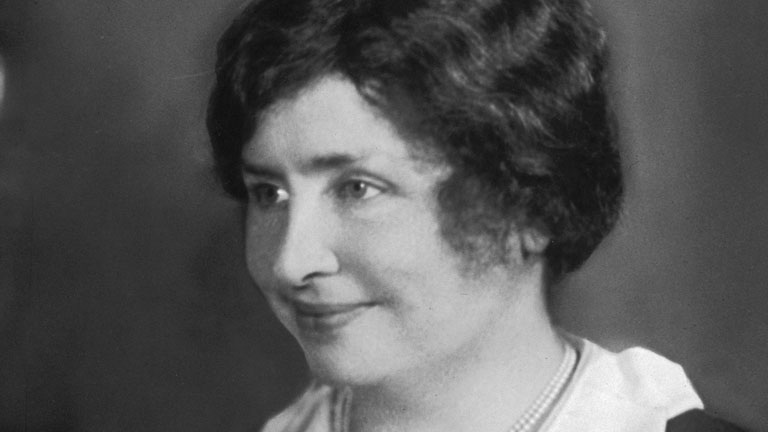
ENLARGE
|
In a letter to a Mr. Hennessy dated January 14, 1930, Keller
wrote:
Who reads shall find in Henry George's philosophy a rare
beauty and power of inspiration, and a splendid faith in the
essential nobility of human nature.
|
Keller,
Helen |
I was deeply touched by your thoughtfulness in
sending me a Braille copy of "Significant Paragraphs from
Progress and Poverty." Each paragraph has given me a
wonderful sense of being in the presence of a great lover of
mankind. I know I shall find in Henry George's philosophy a rare
beauty and power of inspiration, and a splendid faith in the
essential nobility of human nature.
[Source not identified]
|
Kemp,
Jack

ENLARGE
|
Kemp, a leading dissident Republican and advocate of what has
been called supply-side economic policy, included this statement
in a book that revealed his vision for the future:
Property taxes could profitably be revised to fall more
heavily on land rather than, as at present, penalizing property
improvements.
[From the book: An American
Renaissance, p.94]
|
Kenyatta,
Jomo
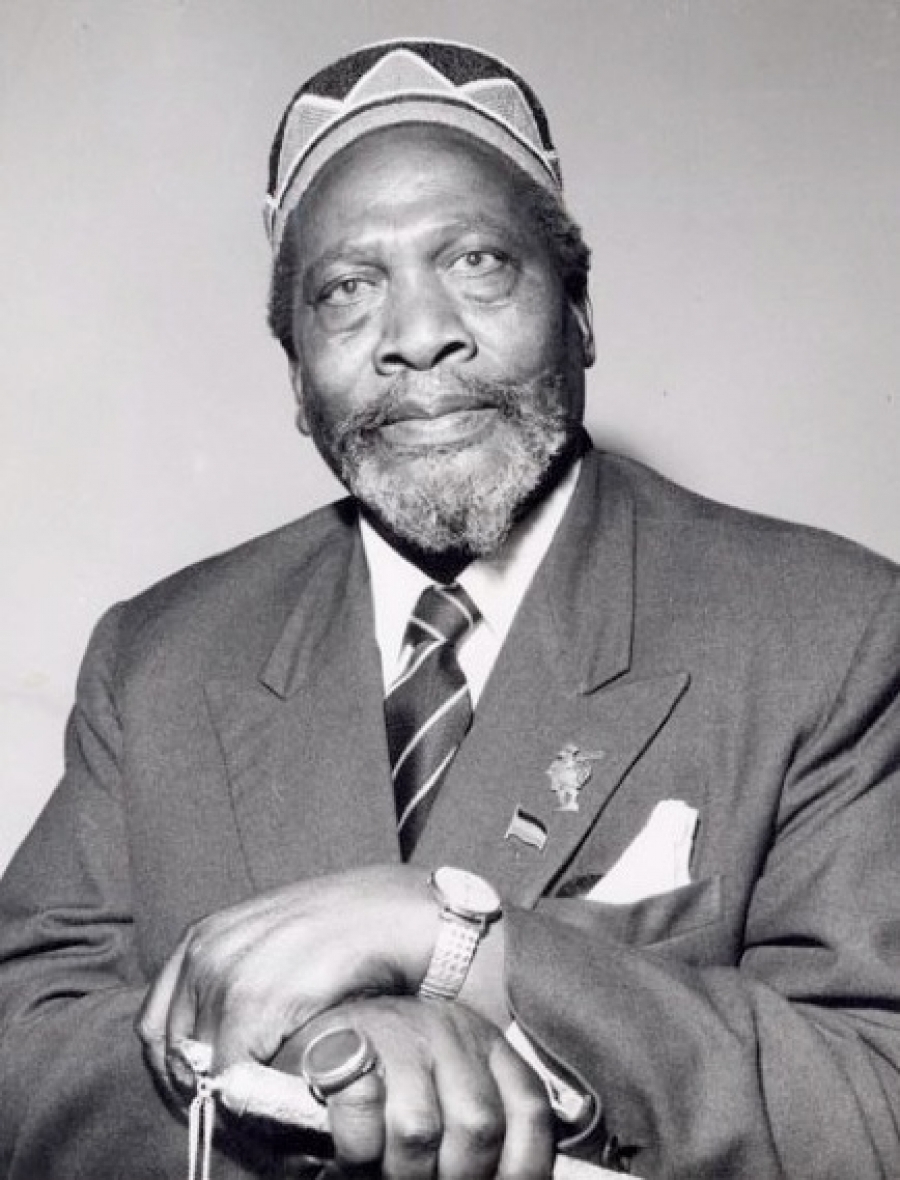
ENLARGE
|
When the white man came we had the land and they had the
Bible. They taught us to pray with our eyes closed and when we
opened them, they had the land and we had the Bible.
[Jomo Kenyatta (1889-1978) was prime
minister of Kenya; source of this statement is not known]
|
Keynes,
John Maynard
(1883-1946)
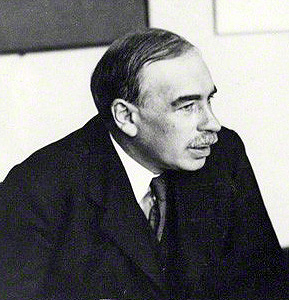
ENLARGE
|
The proposals and analyses of this British economist served as
the basis for the economic policies of numerous governments
following the Second World war. Keynes, who argued convincingly
for for government intervention in the economy to stimulate
private production, not only failed to challenge the institutional
arrangements that permitted the few to monopolize the earth, he
was opposed to the solution proposed by Henry George. Nonetheless,
he did recognize some of: the more subtle, detrimental side
effects of land speculation. On this subject, Keynes wrote:
There have been times when it was probably the craving for the
ownership of land, independently of its yield, which served to
keep up the rate of interest ... The high rates of interest from
mortgages on land, often exceeding the probable net yield from
cultivating the land, have been a familiar feature of many
agricultural economies ... The competition of a high interest-rate
on mortgages may well have had the same effect in retarding the
growth of wealth from current investment in newly produced
capital-assets, as high interest rates on long-term debts have had
in more recent times.
[From: The General Theory of
Employment, Interest and Money, 1936]
|
Keystone Party
(Pennsylvania) |
We believe that the unduly high price of land in this county,
causing high rents for both factory and home, is the greatest
obstacle in the development of diversified industries in this
district. These high prices are due largely to the speculation in
land by which a few individuals appropriate to themselves the
values resulting solely from the growth of the community.
In order to remedy this, we would greatly relieve the
improvements on land from taxation, and to this end, we favor the
reduction of assessments on such improvements at the rate of ten
per cent a year for a period of five years, thereby reducing taxes
on all improved real estate and somewhat increasing them on land
held out of use. Such a policy would tend to reduce rents and to
cause the improving of unused land to the great benefit of all the
people.
[From the platform of The Keystone
Party, adopted 22 July 1911 (drafted by Ralph E. Smith)]
|
King,
Martin Luther

ENLARGE
|
An intelligent appraoch to the problems of poverty and racism
will cause us to see the words of the Psalmist, "The earth is
the Lord's and the fullness thereof" -- are still a judgment
upon our use and abuse of the wealth and resources with which we
have been endowed.
[From: A Testament of Hope: The
Essential Speeches and Writings of Martin Luther King, Jr.,
pp. 629-630]
|
Kingsley,
Charles
(1819-1875)
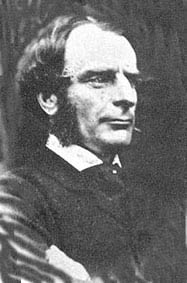
ENLARGE
|
God has made the earth free to all, like the air and the
sunshine, and you are shut out from off it. The earth is yours,
for you till it. Without you it would be a desert. Go and demand
your shre of what corn, the fruit of your own industry.
[From: Alton Locke (1849),
Chap. XXVIII, p. 298 (Speech of Alton Locke in this novel)]
|
Kinsley,
Michael E.
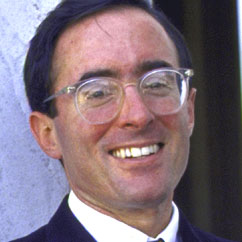
ENLARGE
|
As the late Henry George famously pointed out, wealth accruing
in land operates like a tax on the productive facotrs in the
economy, labor and capital. His solution was to lower the value of
land as close as possible to zero by taxing away all of the
return, or monopoly rent, and using the money to reduce (or, in
his ideal, eliminate) taxes on the productive factors.
[From a commentary, "Let's Hear
It for a Drop in Home Values," Wall Street Journal,
Thursday, 5 June 1986]
|
Kinsley,
Michael E. |
Ownership of natural resources like land or oil does not
'create' or 'supply' anything. The profit from such ownership is a
direct transfer from the rest of society.
[New Republic, June 1981]
|
Kinsley,
Michael E. |
As my favorite economist, Henry George, pointed out a century
ago, inflated land vaues make the economy less efficient. They
operate like a tax on the truly productive factors, labor and
capital.
[From: a column in the Washington
Post, September 22, 1988]
|
Kinsley,
Michael E. |
Ideally, all taxes should be zero because all taxes discourage
the activity being taxed. (The exception is the land tax, as Henry
George famously noted, because land has nowhere to go.) Taxes on
labor discourage work and encourage sloth. Taxes on capital
discourage thrift and encourage consumption.
[From: an editorial in The New
Republic, February 12, 1992]
|
Kleran,
John

ENLARGE
|
Kleran, a sportscaster, later gained fame as the jug-eared,
wide-eyed star of "Information Please," a national radio
and television question-and-answer programa pioneer radio
broadcaster in the United States, said of Henry George:
No one should be allowed to speak above a whisper or write
more than ten words on the general subject (of economics) unless
he has read and digested Progress and Poverty.
|
Lalor,
James Fintan |
In early 1847, Lalor, along with many of his fellow Young
Irelanders, founded the Irish Confederation as an attempt to
establish a pacific middle ground between the Repeal movement and
Young Ireland. Lalor also attempted unsuccessfully about this time
to form a Tenant Rights Association in his home county. He was a
regular contributor to nationalist newspapers The Nation
and The Irish Tribune.
The Irish Famine of '46 is example and proof. The corn crops
were sufficient to feed the island. But the landlords would have
their rents in spite of famine and in defiance of fever. They took
the whole harvest and left hunger to those who raised it. Had the
people of Ireland been the landlords of Ireland, not a human
creature would have died of hunger, nor the failure of the potato
been considered a matter of any consequence.
[source not identified]
|
Lalor,
James Fintan |
I hold and maintain that the entire soil of a country belongs
of right to the entire people of that country, and is the rightful
property not of any one class, but of the nation at large.
[source not identified]
|
Lapushchik,
Tatiana |
The single-tax that George proposed, and Tolstoy advocated,
promised t remove the slavery. Under this plan, the economic rent
would be nationalized. To do so, it is not necessary for the
government to confiscate all the land and become the biggest
landowner. All that is necessary is for government to tax the land
so that its effective value is zero. Given the inelastic nature of
land supply, it is possible to capture the whole rent value
without affecting the price for the consumer. An owner might still
derive income from improvements, but what he gets for land he will
pass on to the government. Before, however, we proceed to
nationalize rent, it is important to explain how it arises in the
first place. ...
[From: Land Question in Russia:
Debate between Tolstoy and Stolypin, 21 April 1907]
|
Laveleye,
Emile de
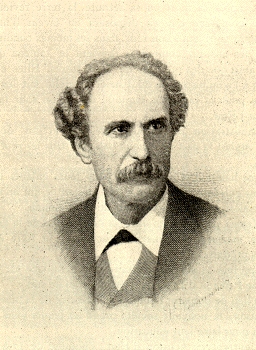
ENLARGE
|
We occupy an island, on which we live by the fruits of our
labor; a shipwrecked sailor is cast up on it; what is his right?
May he ... say: ..."I, too, am a man; I, too, have a natural
right to cultivate the soil. I may, therefore, on the same title
as you, occupy a corner of the land to support myself by my labor?"
[From: Primitive Property,
Chap. XXVII, p.351]
|
Lerner,
Abba |
"I had also read Henry George [before entering the London School of Economics
in 1929], and found him quite impressive both on free trade and on 'the single
tax' on land values..."
[Abba P. Lerner. "Marginal Cost Pricing in the 1930s,"
American Economic Review (Papers and Proceedings), Vol.67 (1977), p. 235]
|
Lespinasse,
Paul de |
It is a great pity that Henry George has not gotten more
attention, and Adam Smith and Karl Marx and their fans less.
George's ideas were not only ahead of his time, they are still
ahead of our time.
[Professor of Political Science;
author of Thinking About Politics]
|
Lincoln,
Abraham
(1809-1865)
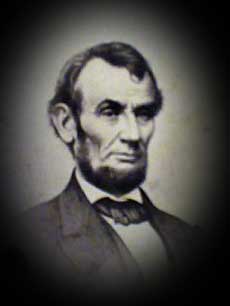
ENLARGE
|
I respect the man who properly named these villains land
sharks. They are like the wretched ghouls who follow a ship and
fatten on its offal.
The land, the earth, God gave to man for his home, sustenance and
support, should never be the possession of any man, corporation,
society or unfriendly government, any more than the air or water
-- if as much. An individual or company, or enterprise, acquiring
land should hold no more than is required for their home and
sustenance, and never more than they have in actual use in the
prudent management of their legitimate business, and this much
should not be permitted when it creates an exclusive monopoly. All
that is not so used should be held for the free use of every
family to make homesteads and to hold them so long as they are so
occupied.
The idle talk of foolish men, that is so common now, will find
its way against it, with whatever force it may possess, and as
strongly promoted and carried on as it can be by land monopolists,
grasping landlords and the titled and untitled senseless enemies
of mankind everywhere.
On the other questions there is ample room for reform when the
time comes; but now it would be folly to think we could take more
than we have in hand. But when slavery is over and settled, men
should never rest content while oppression, wrongs and iniquities
are enforced against them.
[A letter written to a Mr. Gridley,
of the firm of Davis, Lincoln and Gridley, Attorneys, Bloomington,
IL. Reprinted from: Abraham Lincoln and the Men of His Time
by Robert Browne.]
|
Locke,
John
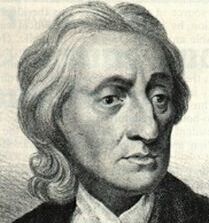
ENLARGE
|
Locke, the philosopher of England's glorious revolution that
peacefully removed a Catholic king from the throne in favor of a
Dutch prince, William of Orange, understood the power of the
landed interests in a society where nature was, for all practical
purposes, fully controlled by a small, landed elite:
When the sacredness of property is talked of, it should be
remembered that any such sacredness does not belong in the same
degree to landed property.
|
Locke,
John |
It is very clear that God, as King David says, "has given
the earth to the children of men"; given it to mankind in
common.
[From: Essay on Civil Government
(1690), Sec. 25.]
|
Locke,
John |
It is in vain in a Country whose great Fund is Land, to hope
to lay the publick charge of the Government on any thing else;
there at last it will terminate. The Merchant (do what you can)
will not bear it, the Labourer cannot, and therefore the
Landholder must: And whether he were best do it, by laying it
directly, where it will at last settle, or by letting it come to
him by the sinking of his Rents, which when they are once fallen
every one knows are not easily raised again, let him consider.
[From: Some Considerations of the
Consequences of the Lowering of Interest and the Raising the Value
of Money]
|
Locke,
John |
This I do boldly affirm, that the same rule of propriety,
viz., that every man should have as much as he could make use of,
would hold still in the world, without straitening anybody, since
there is land enough in the world to suffice double the
inhabitants, had not the invention of money and the tacit
agreement of men to put a value on it, introduced (by consent)
larger possessions and a right to them.
[From: On Civil Government
(1690), Sec. 34]
|
Longfield,
Mountiford
(Justice)
|
Mountiford Longfield Longfiled was the first holder of the
Whately Professorship of Political Economy at Trinity College
Dublin. Although his Lectures attracted relatively little
attention at the time of publication, they have since been
recognized as containing contributions to economic theory of
outstanding originality. Addressing the central themes of
Classical Economics in his Lectures on Political Economy,
Longfield is unusual amongst his contemporaries in having both a
theory grasp of Ricardian theory, and an avaiable alternative. His
Lectures on Commerce are notable for their contribution to trade
theory.
Property in land differs in its origin from property in any
commodity produced by human labor. The product of labor naturally
belongs to the laborer who produced it. ...But the same argument
does not apply to land, which is not the produce of labor, but is
the gift of the Creator of the world to mankind. Every argument
used to give an ethical foundation for the exclusive right to
property in land has a latent fallacy.
[From: Cobden Club Essays,
1st Series, Part I, Chap. 10, p.72]
|
BROWSE BY AUTHOR
|























 THRU
THRU
